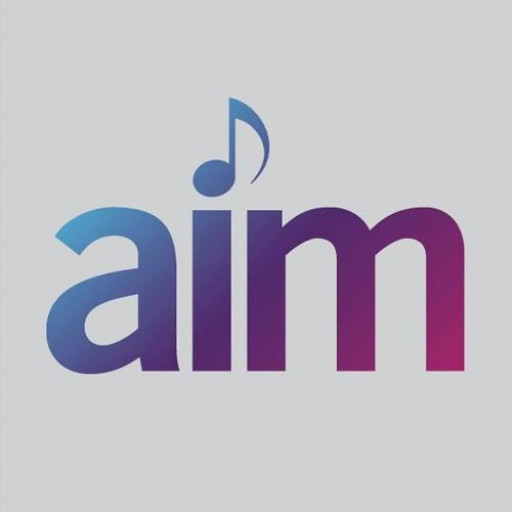Photos of university / #ouranu
The Bachelor of Archaeological Practice at the Australian National University (ANU) is a comprehensive undergraduate program designed to prepare students for a dynamic career in archaeology and cultural heritage management. This degree combines rigorous academic training with practical fieldwork, research projects, and industry engagement to ensure graduates are well-equipped with the skills and knowledge necessary to contribute meaningfully to the understanding and preservation of archaeological resources. Throughout the program, students will explore a wide range of topics including archaeological theory, excavation techniques, artifact analysis, and the interpretation of cultural landscapes. The curriculum emphasizes experiential learning through hands-on field schools conducted across diverse archaeological sites, both in Australia and internationally, providing students with invaluable real-world experience. Additionally, students have the opportunity to develop specialized skills in digital archaeology, conservation methods, and Indigenous cultural heritage practices, aligning with contemporary industry demands. The program fosters critical thinking, interdisciplinary collaboration, and ethical considerations in archaeological research and heritage management. Students will also engage with Indigenous communities and cultural perspectives, promoting respectful and inclusive approaches to archaeology. With access to ANU’s world-class facilities, libraries, and expert faculty, students are encouraged to undertake independent research projects that contribute to ongoing archaeological debates and discoveries. Graduates from this program are prepared for careers in cultural heritage agencies, archaeological consulting firms, museums, research institutions, and further postgraduate study. The Bachelor of Archaeological Practice at ANU offers a unique blend of academic excellence, practical experience, and community engagement, making it an ideal pathway for students passionate about exploring humanity’s past and shaping its future through archaeological practice.
The Bachelor of Archaeological Practice at the Australian National University offers students a comprehensive and immersive education in the field of archaeology, combining rigorous theoretical knowledge with practical fieldwork experience. This program is designed to prepare graduates for careers in archaeological research, heritage management, cultural resource management, and related fields. Throughout the course, students engage with a diverse range of topics, including archaeological theory, excavation techniques, laboratory analysis, and heritage conservation methods. The curriculum emphasizes the importance of ethical considerations and collaborative approaches in archaeological practice, ensuring students develop a well-rounded understanding of the discipline.
Students have the opportunity to participate in archaeological field schools, where they gain hands-on experience in excavation, site surveying, and artifact analysis under the guidance of experienced professionals. These practical components are complemented by coursework in archaeology’s history, the use of advanced technologies such as GIS and remote sensing, and the study of material culture and ancient societies. The program also offers modules focused on heritage legislation, museum studies, and public archaeology, enabling students to understand the broader societal context of archaeological work.
The degree curriculum encourages interdisciplinary learning, drawing on expertise from anthropology, history, conservation science, and environmental studies. This approach enhances students' capacity to interpret archaeological findings within a wider cultural and environmental framework. Additionally, students can participate in internships with museums, archaeological consultancies, and government agencies to gain real-world experience and professional connections.
Graduates of the Bachelor of Archaeological Practice will be equipped with the critical skills to analyze archaeological data, develop and manage cultural heritage projects, and communicate findings effectively to diverse audiences. The program aims to produce competent and ethically responsible archaeologists who can contribute positively to the preservation and understanding of human history. With access to state-of-the-art laboratories and research facilities, students are encouraged to undertake innovative research projects that can contribute to advancing archaeological knowledge nationally and internationally.
Program requirements for the Bachelor of Archaeological Practice at the Australian National University typically include completion of core courses in archaeological theory and methods, excavation techniques, and cultural heritage management. Students are expected to undertake a specified number of elective courses related to archaeology, anthropology, history, and environmental science to broaden their understanding of the field. Practical fieldwork is a vital component, requiring participation in archaeological excavations and laboratory analysis, which develop hands-on skills in excavation, artefact handling, and data recording. The program also emphasizes research skills, with students undertaking a major research project or thesis that involves detailed data collection, analysis, and interpretation concerning archaeological sites or cultural heritage issues. A combination of lectures, seminars, and practical workshops is employed to facilitate learning, often supplemented by opportunities for internships or placements with museums, archaeological consultancy firms, or heritage organizations. To graduate, students must achieve a minimum overall grade point average as specified by the university and complete all required coursework within the designated timeframe. The program aims to equip students with a comprehensive understanding of archaeological practices, cultural heritage conservation, and research methodologies, preparing them for careers in archaeology, cultural resource management, or further academic study. As per university policies, students are also required to adhere to the academic integrity and professional conduct standards outlined in the ANU Code of Conduct.
The Australian National University offers several financing options for students enrolled in the Archaeological Practice program to support their academic pursuits. Domestic students benefit from a range of government-funded schemes, including FEE-HELP, which allows eligible students to defer their tuition fees. Commonwealth Supported Places (CSP) are also available, offering reduced government subsidized tuition fees for eligible domestic students, making higher education more accessible and affordable. Additionally, students can apply for a variety of scholarships specific to archaeology and related disciplines, provided by ANU and external organizations, which may cover tuition fees, living costs, or research expenses. International students have access to different funding channels, including the ANU International Scholarship Program, which offers full or partial tuition fee waivers based on academic merit. Furthermore, students are encouraged to explore external grants and sponsorships offered by cultural heritage organizations, research institutes, and governmental bodies dedicated to archaeological and historical studies. Part-time work opportunities within Canberra, including on-campus employment or internships related to archaeology, facilitate additional financial support while gaining practical experience. The university also provides financial advising and planning services to assist students in managing tuition payments, living expenses, and other costs associated with their studies. Overall, the ANU aims to make the Archaeological Practice program financially attainable through a comprehensive suite of funding options, ensuring students can focus on their academic and professional development without undue financial burden.
The Bachelor of Archaeological Practice at the Australian National University is a comprehensive undergraduate degree designed to provide students with hands-on experience and in-depth knowledge in the field of archaeology. This program emphasizes practical skills alongside theoretical understanding, preparing graduates for professional roles in archaeology, heritage management, and related disciplines. Students will engage in fieldwork, laboratory analysis, and archaeological excavation techniques, gaining firsthand experience in archaeological methods. The curriculum covers a broad range of topics, including ancient cultures, excavation strategies, artifact analysis, and conservation methods, ensuring a well-rounded education. Additionally, students may have opportunities to participate in archaeological digs both within Australia and internationally, fostering real-world experience and cultural understanding. The program also integrates elements of heritage management, urban archaeology, and public archaeology, highlighting the importance of preserving and interpreting cultural heritage in contemporary contexts. Graduates of the Bachelor of Archaeological Practice are equipped with transferable skills such as project management, analytical thinking, and report writing, which are valuable in academic, governmental, and private sectors. The university's affiliation with museums, archaeological institutes, and heritage organizations creates pathways for internships and employment pathways after graduation. The program aims to develop critical and independent thinking about past human societies, emphasizing ethical considerations and the social significance of archaeological work. Overall, the Bachelor of Archaeological Practice is designed to produce competent practitioners who are ready to contribute to archaeological research, cultural heritage conservation, and education.







